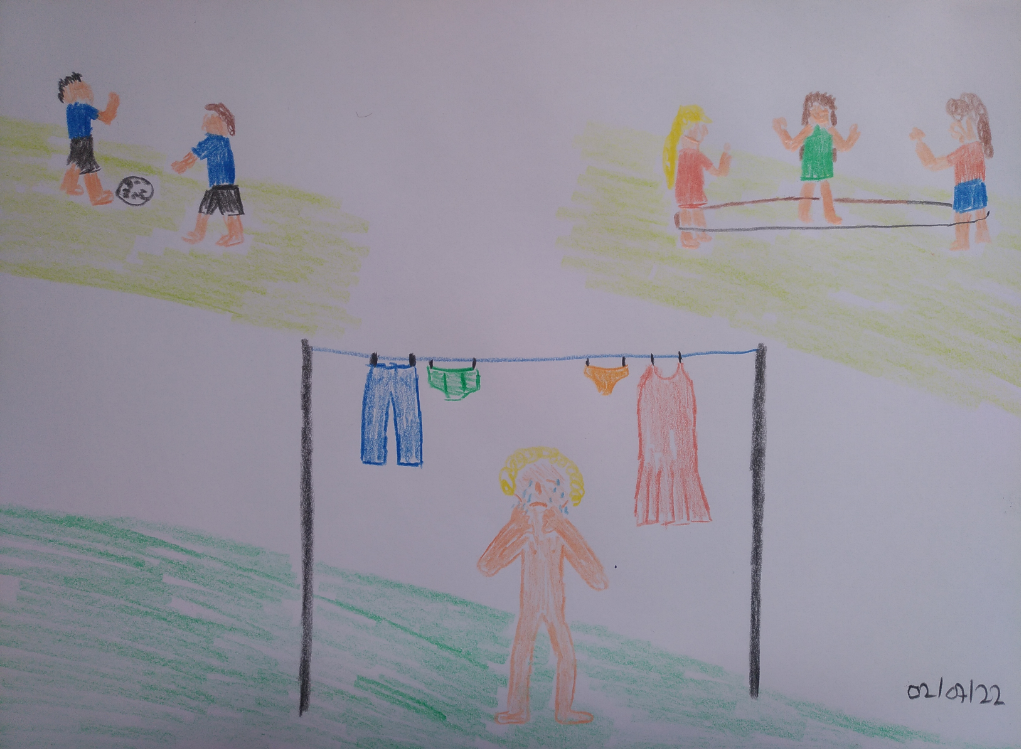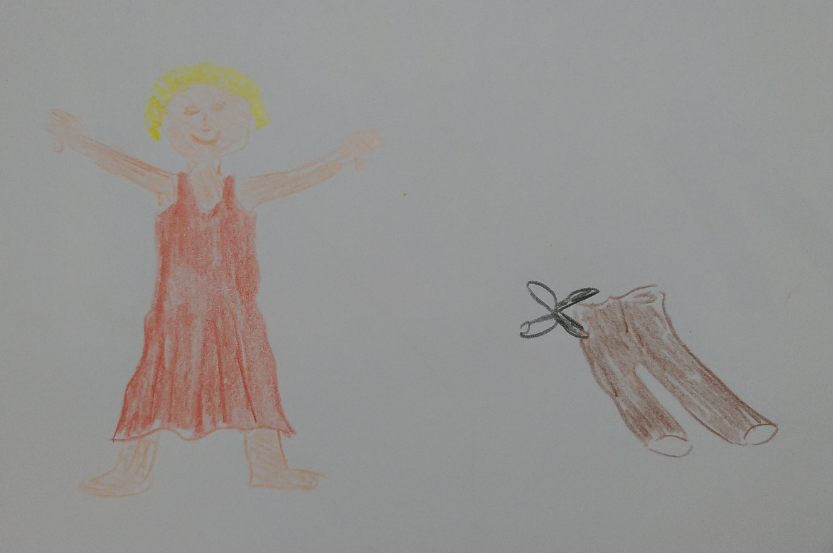A trans* childhood and adolescence that didn't happen (or did it?)
I have started reading Noemí Parra's book, Historias de afectos. Acompañar la adolescencia trans* (Stories of affection. Accompanying trans* adolescence). Already reading the prologue by Lucas Platero I had to cry. A month ago, when I went to the presentation of the book at La Carbonería in Sevilla, I was also very moved when Noemí Parra spoke about trans adolescence, and a friend who was by my side helped me to stabilise myself in this moment. Now, reading the book, again almost every story of trans* youth stirs me up a lot.

Painting of my inner child
And I ask myself: what would have happened in my childhood, in my adolescence, if I had been able to feel myself, to understand that something was happening inside me? Probably nothing good. I never felt I was seen or loved by my parents, and, besides, we are talking about 45 or 50 years ago. I had no role models or references, the internet didn't exist, and I doubt very much that I had any idea that there was such a thing as being trans*, let alone an identity outside the male-female binary.
And then, as a teenager, came the homophobic bullying from my "friends", making fun of my lack of masculine gender expression, calling me a "bi-boy", touching my butt, etc. I don't even want to imagine what would have happened if I had tried a non-masculine, non-binary, or feminine gender expression? If I had painted my nails and if I had worn a dress? Nor do I want to imagine my parents' reaction.
In this sense, I identify very much with the story of Kurt, a young trans-masculine boy, in Noemí Parra's book, who talks about the rejection by his parents that turned into mistreatment. My abuse came already in the form of emotional neglect, permanent intrusions into my intimate space by my mother, and I had also experienced sexual abuse. I needed all my energy to survive. I needed to dissociate and not feel myself almost permanently in order to survive. I knew or felt that I didn't fit into masculinity, but I didn't know anything else. I didn't understand anything else. And I had no energy to explore, I only had energy to survive.

Painting by my inner child
There are things that come to me now - like the "memory" of Angelique - that make me rethink my gender history. Also my connection with my inner child, this child who likes wearing a dress, who refuses to wear trousers, makes me rethink this story. But would another story have been possible, would it have been possible to live another gender identity in my childhood or adolescence without exposing myself to even more danger, more harm, more bullying? I doubt it very much.
But, the trans*, the nobinary identity, in a way was always there, even if hidden, concealed. Without becoming essentialist, there was this discomfort with being a boy, with masculinity, this feeling that this was not me. I didn't know what it was either. And it took me decades to understand myself better, to come out of the closet as a nobinary, genderqueer person (words and concepts that didn't even exist 45 or 50 years ago).
I am still discovering my own queer history, my personal history of my gender identity. It is a beautiful and at the same time often painful process. There is this child, and then there is this inner teenager who is lost, who doesn't know what is happening to them, who is afraid to express themselves, who hides from themselves.
Now, as an adult, while I can rewrite my gender history, I cannot redo it. What I have lived I have lived, and that has been a trans* adolescence and childhood without affection, without anyone who understood me, without understanding myself. But this is the past. In my present I feel well supported by my friends, whether cis, queer or trans*, I feel understood and loved. As Hil Malatino says in the book Trans Care, many of us don't have a family, because we were rejected or had to escape to survive. But we built our own affective networks (some call them family, I don't know how to give this word a positive meaning), care networks, which allow us not only to survive, but to live.
